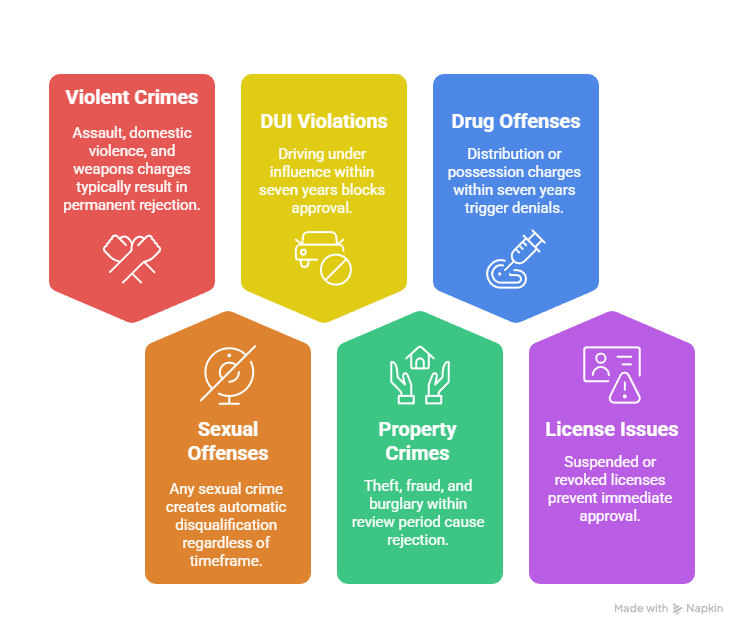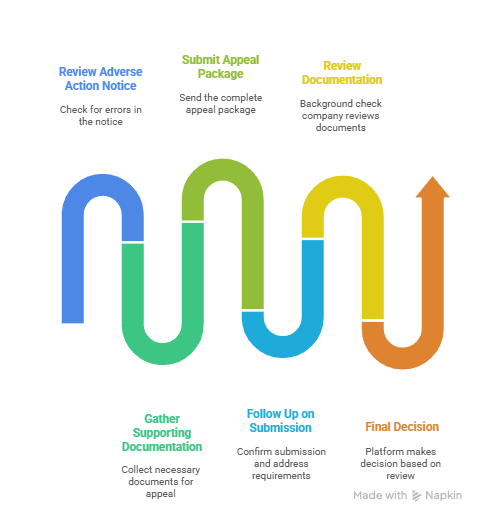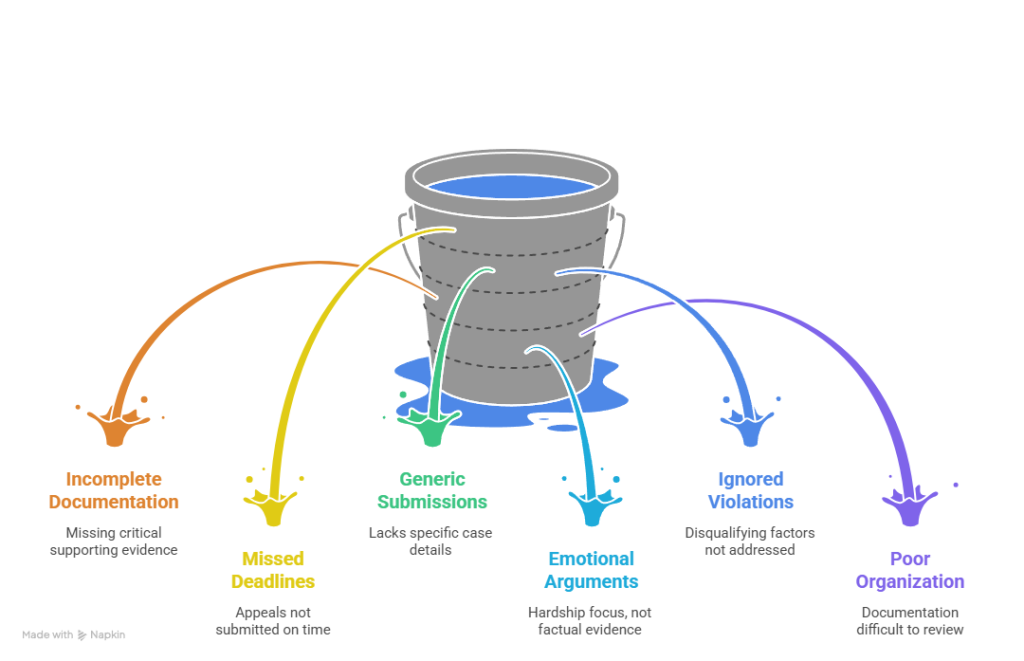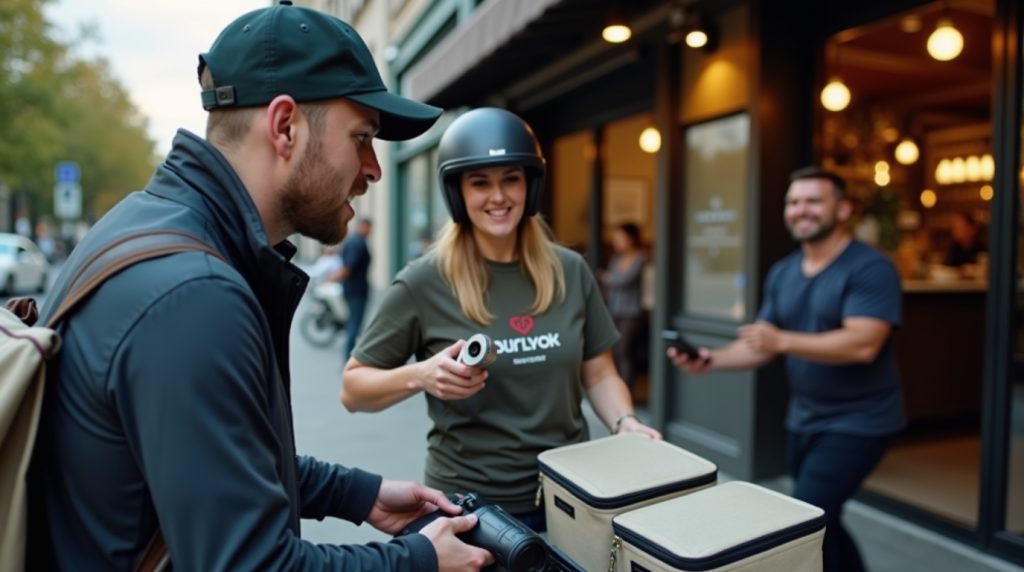A failed rideshare background check can result from various factors including criminal history, driving violations, or reporting errors, but drivers have multiple appeal options and legal protections under the Fair Credit Reporting Act. Understanding the specific reasons for denial and following proper dispute procedures significantly increases the chances of successful reversal.
Key Takeaways
- Background check failures commonly stem from seven-year criminal history reviews, driving record violations, or inaccurate reporting by third-party screening companies.
- FCRA compliance requires rideshare companies to provide adverse action notices and allow dispute periods before final employment decisions.
- Appeal processes vary between platforms, with Uber and Lyft offering different timelines and documentation requirements for background check disputes.
- State-specific protections may limit how far back employers can review criminal records, with California's "ban the box" laws providing additional safeguards.
- Alternative employment options exist for drivers with background check issues, including delivery services with less stringent requirements.
Common Reasons for Failed Rideshare Background Checks
Understanding why background checks fail helps drivers address specific issues during the appeal process. Rideshare companies like Uber and Lyft use third-party screening services that review both criminal history and driving records. These companies typically examine records going back seven years for comprehensive evaluation.
Criminal convictions represent the most frequent cause of rideshare background check failures. However, many drivers don't realize that different types of violations carry varying levels of severity. Additionally, the timing of violations significantly impacts approval chances.
Traffic violations and driving record issues also frequently disqualify potential rideshare drivers. Moving violations, license suspensions, and at-fault accidents can all trigger automatic rejections. Meanwhile, database errors and identity verification problems create additional barriers that many drivers face unexpectedly.
Major disqualification categories include:

- Violent crimes: Assault, domestic violence, and weapons charges typically result in permanent rejection
- Sexual offenses: Any sexual crime creates automatic disqualification regardless of timeframe
- DUI violations: Driving under influence within seven years blocks approval
- Property crimes: Theft, fraud, and burglary within review period cause rejection
- Drug offenses: Distribution or possession charges within seven years trigger denials
- License issues: Suspended or revoked licenses prevent immediate approval
These categories help drivers understand which violations pose the greatest challenges. Most rideshare platforms maintain strict policies regarding public safety concerns.
Understanding Your Rights Under FCRA
The Fair Credit Reporting Act provides comprehensive protections for job applicants undergoing background checks. These protections apply specifically to rideshare companies and other employers using third-party screening services. Moreover, FCRA violations can result in significant legal penalties for non-compliant companies.
Employers must follow strict procedures when making adverse employment decisions based on background check results. First, they must provide pre-adverse action notices when potentially disqualifying information appears. Then, they must wait at least five business days before making final rejection decisions.
Rideshare companies cannot simply reject applications without proper notification and dispute opportunities. Consequently, many drivers successfully challenge improper rejections through FCRA-based appeals. Furthermore, companies that violate these procedures face potential lawsuits and financial penalties.
Adverse Action Notice Requirements
Proper adverse action notices must include specific information about background check findings and dispute procedures. These notices must identify the consumer reporting agency providing the report. Additionally, they must include complete contact information for initiating disputes.
The notice should specify which findings led to the adverse employment decision. It must also include a copy of the background check report and a summary of consumer rights. Companies failing to provide complete documentation may face legal challenges and potential application reinstatement.
The Background Check Appeal Timeline Process
Most rideshare background check appeals follow a structured timeline that begins immediately after adverse action notification. Understanding this timeline helps drivers prepare appropriate documentation and set realistic expectations. Additionally, knowing key deadlines prevents missed opportunities for successful appeals.

Week 1: Initial Response Period
- Days 1-3: Review adverse action notice and background check report for errors
- Days 4-7: Gather supporting documentation including court records and certificates
Week 2: Documentation Submission
- Days 8-10: Submit complete appeal package through appropriate platform channels
- Days 11-14: Follow up on submission confirmation and additional requirements
Week 3: Review and Decision
- Days 15-21: Background check company reviews submitted documentation
- Final decision: Platform makes determination based on updated information
This timeline varies slightly between different rideshare platforms and screening companies. However, most appeals receive final decisions within three weeks of initial submission.
Uber Background Check Appeal Process
Uber maintains a structured appeal system for disputed background check results through their partner portal. The process requires submitting comprehensive documentation packages that address specific disqualifying factors. Additionally, Uber reviews appeals on a case-by-case basis considering rehabilitation efforts and supporting evidence.
Successful Uber appeals typically include multiple types of supporting documentation. Court records showing case dispositions prove legal resolution of violations. Character references from employers or community leaders demonstrate personal growth and responsibility.
Drivers must upload all documentation in PDF format through the partner portal system. Each document should be clearly legible and properly certified when applicable. Furthermore, personal statements explaining circumstances and rehabilitation efforts strengthen appeal packages significantly.
Required Documentation Standards
Uber requires specific documentation types depending on the violation being appealed. Court records must be certified copies showing complete case dispositions and sentence completions. Expungement certificates need official court seals proving legal record sealing or dismissal.
Documentation checklist includes:
- Certified court records: Complete case files with final dispositions
- Completion certificates: Proof of defensive driving courses or rehabilitation programs
- Character references: Letters from employers, community leaders, or program directors
- Personal statements: Written explanations of circumstances and personal growth
- Legal updates: Recent court modifications or sentence completions
These documents tell complete stories about personal responsibility and positive changes. Comprehensive packages significantly improve approval chances compared to minimal submissions.
Lyft Background Check Dispute Options
Lyft offers multiple dispute channels for rejected applicants through their screening partner network. Drivers can initiate appeals through the Lyft driver app, direct email contact, or the screening company's online portal. Moreover, Lyft emphasizes documentation quality and typically responds faster than other major platforms.
The dispute process allows challenging specific findings while applications remain under review. The screening company provides detailed case numbers and tracking information for submitted appeals. Meanwhile, Lyft maintains communication through app notifications and email updates throughout the process.
Screening Company Communication Process
The background screening service requires specific information when initiating disputes for Lyft applications. Drivers must provide their Lyft application ID numbers and screening report reference numbers. Additionally, all communication should reference these numbers for proper case tracking.
Email correspondence should be directed to the screening company's dedicated dispute department. Phone support is available during business hours for urgent cases requiring immediate attention. However, written documentation through email creates better appeal records than phone conversations alone.
State-Specific Legal Protections and Regulations
Different states maintain varying laws regarding background check procedures and employment discrimination. California's "ban the box" legislation limits when employers can consider criminal history information. Similarly, other states have enacted laws protecting job applicants from unfair background check practices.
Key state protections include:
- California: Seven-year lookback limits for most violations with rehabilitation considerations
- New York: Certificate of relief programs that override certain disqualifications
- Texas: Occupational licensing reforms allowing appeals for relevant convictions
- Illinois: Expungement and sealing programs that remove records from background checks
These protections vary significantly between jurisdictions and require understanding local employment laws. Consequently, drivers should research their specific state regulations before beginning appeal processes.
Furthermore, some states have implemented "fair chance" hiring laws that restrict when employers can conduct background checks. These laws often require conditional job offers before background screening can occur. Additionally, certain states mandate individualized assessments considering rehabilitation and job relevance factors.
Alternative Employment Options After Background Check Failure
Drivers who cannot successfully appeal rideshare background check failures have several alternative employment opportunities available. Many delivery platforms maintain different background check standards that accommodate various violation types. Additionally, these alternatives often provide similar income potential while drivers pursue appeals or legal remedies.
Food delivery services like DoorDash and Grubhub often accept drivers with minor violations that disqualify them from rideshare platforms. Grocery delivery services focus more heavily on customer service skills than driving record perfection. Package delivery opportunities through Amazon Flex and independent courier services may offer more flexible approval standards.
Transportation alternatives include medical transport services, moving assistance companies, and traditional taxi operations. These options frequently have different background check criteria and may accept drivers with specific types of violations. Meanwhile, drivers can work toward resolving background check issues through expungement proceedings or waiting for violations to age out of review periods.
| Service Type | Background Check Focus | Income Potential |
| Food delivery | Driving record emphasis | $15-25 per hour |
| Grocery delivery | Customer service focus | $12-20 per hour |
| Package delivery | Reliability requirements | $18-28 per hour |
| Medical transport | Safety and punctuality | $16-24 per hour |
These alternatives help maintain income stability while pursuing long-term solutions to background check obstacles. Many drivers successfully transition back to rideshare platforms after completing legal procedures or rehabilitation programs.
Expungement and Record Sealing Options
Expungement proceedings can eliminate criminal records from background checks permanently. Many states offer expungement programs for eligible violations after specific waiting periods. Additionally, record sealing provides similar benefits by restricting public access to conviction information.
The expungement process varies significantly between different states and violation types. Generally, misdemeanor convictions become eligible for expungement sooner than felony violations. Moreover, successful completion of probation or parole typically represents a prerequisite for expungement consideration.
Legal assistance often proves beneficial for navigating complex expungement procedures and requirements. Attorneys specializing in criminal record relief understand specific state procedures and can expedite the process. Furthermore, successful expungement creates new opportunities for rideshare employment and other background-check-required positions.
Expungement Timeline and Costs
Expungement proceedings typically require 3-6 months for completion depending on court schedules and case complexity. Filing fees range from $150 to $500 in most states. Additionally, attorney fees for professional assistance typically cost $1,500 to $3,500 for standard cases.
The investment in expungement often pays significant dividends through expanded employment opportunities. Successfully sealed records cannot appear on future background checks for employment purposes. Therefore, drivers with eligible violations should strongly consider pursuing expungement as a long-term solution.
Preparing Strong Appeal Documentation
Successful background check appeals require comprehensive documentation that addresses specific violation concerns. Strong appeal packages combine legal documents, character references, and personal statements that demonstrate rehabilitation and responsibility. Additionally, organized presentation significantly improves reviewer perception and decision outcomes.
Court documents should be certified copies showing complete case resolutions and sentence fulfillment. Personal statements should acknowledge past mistakes while demonstrating personal growth and positive life changes. Character references from employers, community leaders, or program directors provide third-party validation of rehabilitation efforts.
Timeline organization helps reviewers understand the progression from violations to current circumstances. Chronological presentation makes appeal packages easier to evaluate and creates stronger narratives about personal transformation. Moreover, professional document preparation ensures compliance with legal requirements and presents information persuasively.
Essential documentation elements:
- Legal resolution proof: Certified court records showing case completion and compliance
- Rehabilitation evidence: Program completion certificates, community service records, employment history
- Character validation: Reference letters from credible sources describing positive changes
- Personal accountability: Written statements acknowledging past mistakes and demonstrating growth
These elements work together to create compelling narratives about personal responsibility and positive change. Comprehensive packages significantly outperform minimal submissions in approval rates.
Common Appeal Mistakes to Avoid
Many drivers make critical errors during the background check appeal process that reduce their chances of success. Submitting incomplete documentation represents the most frequent mistake that delays or derails appeals. Additionally, missing deadlines or failing to follow specific platform procedures can result in automatic appeal rejections.
Emotional appeals without supporting documentation rarely succeed in changing background check decisions. Reviewers focus on factual evidence and legal documentation rather than personal circumstances or hardship stories. Furthermore, arguing about the fairness of background check policies typically proves counterproductive in appeal situations.
Failing to address all disqualifying factors in appeal submissions creates incomplete cases that screening companies cannot approve. Each violation or concern must be specifically addressed with appropriate documentation. Moreover, generic appeal letters that don't reference specific background check findings demonstrate lack of preparation and attention to detail.
Critical mistakes include:

- Incomplete documentation: Missing court records, certificates, or supporting evidence
- Missed deadlines: Failing to submit appeals within required timeframes
- Generic submissions: Using template letters without specific case details
- Emotional arguments: Focusing on hardship rather than factual evidence
- Ignored violations: Failing to address all disqualifying factors in appeals
- Poor organization: Submitting disorganized or difficult-to-review documentation
Avoiding these common mistakes significantly improves appeal success rates. Professional preparation helps ensure comprehensive and persuasive appeal submissions.
Documentation Organization Best Practices
Effective appeal documentation requires logical organization that makes reviewer evaluation efficient and thorough. Create separate sections for each violation being appealed with corresponding supporting documentation. Additionally, include cover letters that summarize the appeal and reference specific background check findings.
Number all documents and create detailed tables of contents for complex appeal packages. Use clear headings and consistent formatting throughout all submitted materials. Furthermore, ensure all documents are clearly legible and properly oriented before submission through digital portals.
Conclusion
Failed rideshare background checks create significant challenges but don't necessarily end driving opportunities permanently. Understanding specific failure reasons, exercising FCRA rights properly, and following structured appeal processes significantly improve resolution chances. Professional dispute services provide valuable assistance for complex cases, while alternative employment options help maintain income during appeal periods. With proper preparation, comprehensive documentation, and persistent effort, many drivers successfully overcome background check obstacles and achieve their employment goals in the rideshare industry.
Frequently Asked Questions
How long does a rideshare background check appeal take?
Most rideshare background check appeals take 5-14 business days for processing, depending on the platform and complexity of the case. Uber typically processes appeals within 5-10 days, while Lyft and other platforms may require up to 14 days. Cases requiring additional documentation or involving multiple violations may take longer.
Can I appeal a rideshare background check multiple times?
Yes, most rideshare platforms allow multiple appeals, especially when new documentation becomes available or circumstances change. You can submit additional appeals after completing expungement proceedings, obtaining court record corrections, or gathering stronger supporting evidence. However, repeated appeals with identical documentation are unlikely to succeed.
What violations automatically disqualify rideshare drivers?
Sexual offenses, violent felonies, and DUI convictions within seven years typically result in automatic disqualification from most rideshare platforms. However, specific policies vary between companies, and some violations may be appealable with proper documentation and evidence of rehabilitation.
Do I need a lawyer for rideshare background check appeals?
While lawyers aren't required for background check appeals, legal assistance can be beneficial for complex cases involving multiple violations or FCRA compliance issues. Many drivers successfully handle simple appeals independently, but professional help increases success rates for challenging cases.
How far back do rideshare background checks go?
Most rideshare companies review criminal history for seven years and driving records for three to seven years, depending on the violation type. However, certain serious crimes like sexual offenses or violent felonies may result in permanent disqualification regardless of timeframe.
Can expunged records still appear on rideshare background checks?
Expunged records should not appear on background checks, but database errors sometimes cause sealed records to show up incorrectly. If expunged records appear on your background check, you have strong grounds for appeal and should provide certified expungement documentation to the screening company.
Additional Resources
- Fair Credit Reporting Act Consumer Rights Information
https://www.consumer.ftc.gov/articles/pdf-0096-fair-credit-reporting-act.pdf - Uber Driver Background Check Appeal Portal
https://help.uber.com/driving-and-delivering/article/background-check-appeal - Lyft Background Check Dispute Information
https://help.lyft.com/hc/en-us/articles/background-check-requirements - National Consumer Law Center Background Check Guide
https://www.nclc.org/resources/fair-credit-reporting-act/ - California Employment Background Check Laws
https://www.dir.ca.gov/dlse/HowToFileWageClaim.htm - Consumer Financial Protection Bureau FCRA Resources
https://www.consumerfinance.gov/consumer-tools/background-checks/
Still have questions?
Get in touch with our team today for a personalized demo and discover how our tailored volume pricing and packages can drive results for your business!
How useful was this page?*
Note: your comments are anonymous. We use them to improve the website. Do not include any personal details.
Visit our FCRA Compliance Tool or leave a message here if you need a response.
From the blog Explore the GCheck Content Hub

FACIS Background Check: 2026 Healthcare Compliance Guide
18 Dec, 2025 • 20 min read
Food Delivery Driver Background Check: Complete Compliance Guide for Restaurant Operators
17 Dec, 2025 • 17 min read
Texas Education Background Checks: 2026 TEA Compliance Guide for Schools & Districts
17 Dec, 2025 • 23 min readThe information provided in this article is for general informational and educational purposes only and should not be construed as legal advice or a substitute for consultation with qualified legal counsel. While we strive to ensure accuracy, employment screening laws and regulations—including but not limited to the Fair Credit Reporting Act (FCRA), Equal Employment Opportunity Commission (EEOC) guidelines, state and local ban-the-box laws, industry-specific requirements, and other applicable federal, state, and local statutes—are subject to frequent changes, varying interpretations, and jurisdiction-specific applications that may affect their implementation in your organization. Employers and screening decision-makers are solely responsible for ensuring their background check policies, procedures, and practices comply with all applicable laws and regulations relevant to their specific industry, location, and circumstances. We strongly recommend consulting with qualified employment law attorneys and compliance professionals before making hiring, tenant screening, or other decisions based on background check information.

